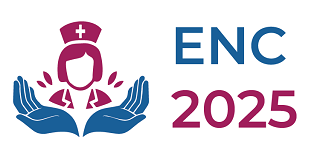2nd Euro
Nursing Congress
September 15-16, 2025 | Online
ENC 2025

Tehran University of Medical Sciences, Iran
Abstract:
Cancer brings up a wide range of physical, psychosocial, spiritual, and existential distresses and impacts on the patient’s well-being and quality of life. Dignity therapy is a practical psychotherapeutic individualized intervention that aimed at creating a sense of meaning among patients with terminal illnesses. This study aimed to assess the effect of dignity therapy on the quality of life of patients dealing with cancer. In this quasi-experimental study, 50 patients with cancer hospitalized in a palliative care center in Tehran, Iran, who fulfilled inclusion criteria, were selected through convenience sampling. EORTC-QLQ-C15-PAl questionnaire was filled by patients before and 2 weeks after dignity therapy. Data were analyzed using descriptive and inferential statistics. Results showed that dignity-therapy led to more improvement in the quality of life of the intervention group (t35,18= 4.82, p = 0.001). There was a significant difference between the two groups in terms of the physical (t32,96= -2.60,p = 0.01) and emotional functioning (t 45,69= 6.54, p < 0.001). Also more improvement in nausea and vomiting (χ2 = 5.71, p = 0.02), insomnia (χ2 = 15.78, p < 0.001), appetite (χ2 = 5.09, p = 0.02), and constipation (χ2 = 12.50, p < 0.001). This study indicates that dignity therapy has a significant effect on the quality of life of patients with advanced cancer. Thus, the application of this new therapeutic approach would shed light on quality of life of mentioned patients in terms of reducing their physical distress and improving their emotional well-being.
Biography:
Arpi Manookian has completed her PhD at the age of 32 years from Tehran University of Medical Sciences. She is an Associate Professor of Nursing and Vice-Dean for International Affairs of the School of Nursing & Midwifery, Tehran University of Medical Sciences. She has published more than 30 papers in reputed journals.
